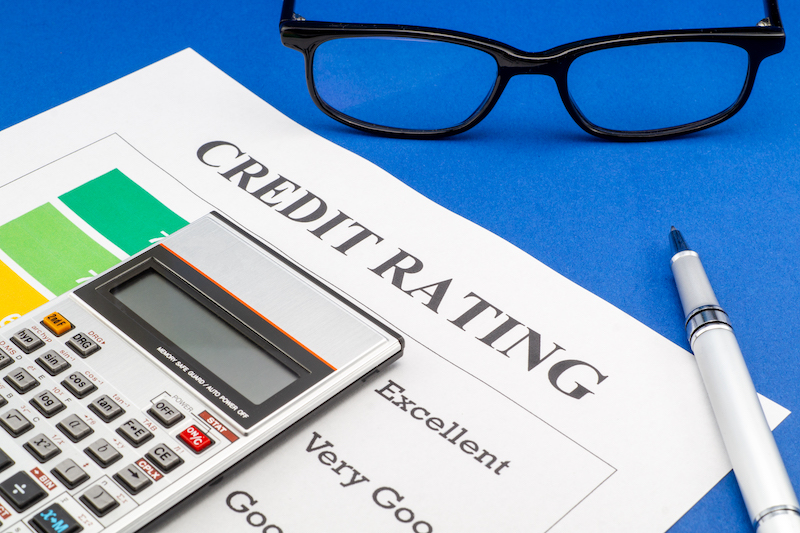South Africa has a difficult relationship with credit at best. From national debt at the highest levels of society, to some of the highest levels of personal debt in the world behind closed doors, we are a nation of borrowers – and debtors too. Many people are walking around wondering how to increase their credit score or how to improve their credit score quickly. Where do you even start when you need to get your credit score online in South Africa?
In 2012, the South African Financial Services Board (FSB) published statistics indicating that the Rainbow Nation currently has a financial literacy rate of 51%. Although 51% may meet the (fairly low) criteria to be considered “financially literate”, 49% of us still fall short. You can see this statistic is real when you look the average credit scores in South Africa! Even among the supposedly money-savvy contingent, many of us still struggle with the basics; from understanding APRs (Annual Percentage Rates) to getting to grips with our credit ratings.
Our credit ratings, particularly, lie at the heart of our national debt problem – and our financial literacy issues. Many South Africans make heavy use of financial products, like loans and credit cards, with little thought for the effect these products have on our credit report. They are left asking questions “Why is my credit score going down? Why is my credit score dropping so badly?” with no understanding that every bit of credit and every credit check is lowering their credit score.
By the same measure, many of us aren’t aware that credit scores are extremely responsive or that they have a knock-on impact on our future borrowing. It isn’t until our mortgage application is turned down or a phone provider won’t offer us a contract that we realise the real-world effect of our use (and abuse) of credit. This leads to people wondering how they can increase their credit score by 100 points in 30 days! An impossible task many might argue.
With all the above said, are you ready to get to grips with your credit score and learn how to manage it responsibly? Are you ready to see how you can realistically improve your score in 30 days by at least some measure?
What is my credit score?
Let’s kick off with the basics. Every adult who has ever used credit will have a credit report. Credit can be anything like a short-term loan, to buying a car using a finance agreement. When you apply for a new credit product, your potential lender will check your credit report to find out whether or not you are likely to use their product responsibly (i.e. repay your debt on time).
When you get your credit score in South Africa, you will see your score can range from 330 to 850. Higher scores identify the more responsible borrowers and lower scores suggest less responsible borrowers. Below ranges might answer your question of what is considered a good credit score. In the eyes of most creditors, scores are loosely viewed like this:
- 800+ – Exceptional
- 740 to 799 – Excellent
- 670 to 739 – Very Good
- 580 to 669 – Good
- 579 & below -Poor
There are many things which can affect your credit score positively and negatively, but “black marks” such as missed payments, late payments and other repayment issues will send your score plummeting. Keeping the above ranges in mind and consistently checking your credit score online, you will start seeing how difficult it can be to increase your credit score by 100 points. Or even the big task of how you can increase your credit score to 800!
Why is it important?
Having at least a “good” credit rating will make a considerable difference to your life in both practical and financial terms. At this level, you are likely to be approved for most basic financial products – although you may not have access to special rates and high-level products (you’ll need a very good or excellent score for this).
By contrast, a poor or very poor score will make it much more difficult to access credit products such as loans and mortgages. From putting your life plans on hold (perhaps you require finance to re-enter adult education), to preventing you from purchasing a vehicle via a finance plan, or making your mortgage much, much more expensive, a less than perfect credit score can be a real thorn in your side, and cost you extra too. You can find out more about the consequences of a low credit score here.
How to get a good credit score
So how can you get a good credit score – and how can you maintain it? Below you’ll find a few helpful tips you might want to consider to help you achieve the best possible credit score for you. Maybe you can even manage to increase your credit score by 100 points in 30 days through sheer will!
Keep in mind that, if your credit score is already low, it can take a long time to repair the damage and restore your record to a credit health level lenders feel comfortable with.
1. Know the score
Knowledge is power. Even if the news is bad, knowing what your credit score is gives you the power to improve it – or maintain it. Companies like Experian, Transunion, and Compuscan offer free annual credit checks (just watch out for sneaky extra charges).
Alternatively, instead of wonder how to check your credit score online in South Africa, you can just our free credit score tool here: myFincheck Free Credit Score.
2. Leave relationships out of your credit score
In the first flushes of love it’s tempting to dive in feet first and totally meld your lives – including your finances. Unfortunately, if Mr or Ms Perfect have a less-than-perfect credit history it can mean big trouble for your credit score – especially if your joint finances take a turn for the worse.
3. Don’t max out your credit utilization
If you’re using a financial product, like a credit card, don’t push it to the limit each month. Many people wonder why their credit score will suddenly drop and this is one of the main reasons. Sudden high credit use can be a sign of reckless spending or unbalanced finances. Use no more than 75% to make your credit use appear more measured and responsible.
4. Get stable
A globetrotting, risk-taking existence may sound exciting, but it’s no good for those looking to improve credit scores. Regular changes of address, job changes and other indicators of stability can all affect your credit rating.
If your credit report has taken a serious knock and you want to improve your credit score, you can read this article on how to fix your credit score in 6 months at most.






